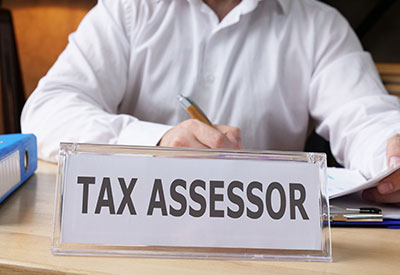When Marie lost her husband James, a 100% disabled veteran who served in Afghanistan, she worried about keeping their family home in Texas. The property tax exemption they had received due to James' military service had made their home affordable, but Marie wasn't sure if she could still claim this benefit after his passing. Like many surviving spouses, she discovered that she could indeed continue receiving property tax relief — a benefit that ultimately helped her maintain financial stability and plan for the future.
Every year, thousands of surviving spouses of disabled veterans face similar uncertainty about their property tax benefits. Many risk losing substantial tax exemptions simply because they don't understand their rights or know how to maintain them. These benefits, earned through their veteran spouse's service and sacrifice, can mean the difference between comfortable homeownership and financial strain.
The good news is that most states offer significant property tax relief to surviving spouses of disabled veterans. These programs can save you thousands of dollars annually on your property taxes, providing vital financial stability during a challenging life transition. However, securing and maintaining these benefits requires understanding your rights, meeting specific deadlines and contending with an oftentimes complex application process. Many jurisdictions also require surviving spouses to reapply for the exemption.
Are property taxes exempt for surviving spouses of veterans?

Property tax benefits for surviving spouses vary significantly by state, but they often provide significant relief from property tax burdens. For instance, in Texas, surviving spouses of 100% disabled veterans can maintain a complete property tax exemption on their primary residence, potentially saving thousands of dollars annually. California offers similar protections through their Disabled Veterans' Exemption program, while states like Maryland and Georgia provide substantial relief through their respective programs.
The actual value of these exemptions becomes particularly meaningful when you consider the rising costs of property ownership. A full exemption in a state like Texas creates significant breathing room in a surviving spouse's budget. This financial cushion can prove invaluable during the transition period following the loss of a veteran spouse.
How do you qualify for surviving spouse property tax benefits?
Eligibility for property tax exemptions for surviving spouses of disabled veterans typically depends on several key factors. The most common requirements include your marital status at the time of your veteran spouse's death, their service-connected disability rating and your continued use of the property as your primary residence. For example, some states require that surviving spouses remain unmarried and maintain the home as their homestead to continue receiving benefits.
The veteran's disability rating often plays a crucial role. In many states, surviving spouses of veterans who were rated 100% disabled due to service-connected conditions receive the most substantial benefits. Some states provide graduated benefits based on lower disability ratings or different service qualifications.
Are there income limits for the surviving veteran’s spouse to qualify?

Many states have chosen not to impose income restrictions on surviving spouses seeking to qualify for disabled veteran property tax exemptions. Texas, for instance, allows surviving spouses to maintain the full property tax exemption on their residence homestead indefinitely, provided they haven't remarried. This benefit continues regardless of the surviving spouse's income level, offering substantial financial security. Similarly, Virginia places no income limitations on their exemption program, requiring only that the surviving spouse continue to occupy the property as their principal residence and remain unmarried. California follows this approach as well.
However, some states have implemented specific income requirements that surviving spouses must meet to qualify for these exemptions. Oregon, for example, has established clear income thresholds for their program. As of 2024, surviving spouses must demonstrate that their total gross income in the year preceding their exemption application does not exceed 185 percent of the annual federal poverty level guidelines. Minnesota takes a different approach, offering qualifying surviving spouses a market value exclusion of up to $300,000 until they remarry or transfer the property, though they don't specify explicit income restrictions.
What steps should spouses of veterans take to claim benefits?

Securing your property tax exemption requires careful attention to documentation and timing. An important first step involves notifying your county tax assessor's office of your spouse's passing. This notification initiates the process of transferring or continuing the property tax exemption under your name. Many jurisdictions have specific deadlines for claiming continued benefits, and delays could result in unnecessary tax expenses. The tax assessor's office can provide detailed information about local requirements and guide you through the application process.
You'll need to gather several essential documents to support your application for continued benefits. These typically include your spouse's death certificate, your marriage license and documentation of your spouse's military service and disability rating. Many jurisdictions also require proof of your continued residence in the property and, if applicable, an affidavit confirming your unmarried status.
Here are the key documents you'll need to gather:
- Death certificate and marriage license.
- Military service records and disability rating documentation from the Department of Veterans Affairs.
- Property ownership documents.
- Current identification and proof of residence.
- Social Security cards for both you and your deceased spouse.
How do you maintain your disabled veteran homestead exemption?
Maintaining your property tax exemption requires ongoing attention to certain requirements. Many jurisdictions conduct periodic reviews to ensure continued eligibility. Keep detailed records of all documentation related to your benefits, and respond promptly to any requests for verification from your tax assessor's office.
Some states require annual certification of your continued eligibility, particularly regarding your marital status and use of the property as your primary residence. Creating a simple filing system for important documents and setting calendar reminders for any required renewals can help you maintain these valuable benefits without interruption.
Are additional benefits available to spouses of deceased disabled veterans?

Beyond property tax exemptions, surviving spouses often qualify for other valuable benefits that include health care, income, education, housing and more. Your state and county veterans service officers can provide guidance on various benefit programs and assist with applications, appeals and other matters.
One important benefit is comprehensive health care coverage through the Civilian Health and Medical Program of the Department of Veterans Affairs (CHAMPVA). This program is vital for those who lose coverage after their spouse's passing. CHAMPVA works similarly to civilian health insurance. Dental insurance is provided through the VA Dental Insurance Program (VADIP).
Dependency and Indemnity Compensation (DIC) provides a tax-free monthly payment to surviving spouses of veterans who died from a service-connected disability or have had a service-connected disability rating for a certain period before their death. Survivor Benefit Plan (SBP) payments provide ongoing financial support to surviving spouses of military retirees.
Also, the Survivors' and Dependents' Educational Assistance (DEA) provides up to 36 months of education benefits, and the VA provides home loan guaranty benefits to qualifying surviving spouses.
Conclusion
Property tax exemption benefits for surviving spouses of disabled veterans can save thousands of dollars annually and provide peace of mind during a challenging life transition. Delays in claiming or transferring benefits can result in unnecessary property tax expenses and complicated retroactive claims processes. The process of claiming and maintaining these benefits might seem daunting at first, but you don't have to endure it alone. Your local tax assessor's office and veterans service officers can help surviving spouses with the application and eligibility process.



